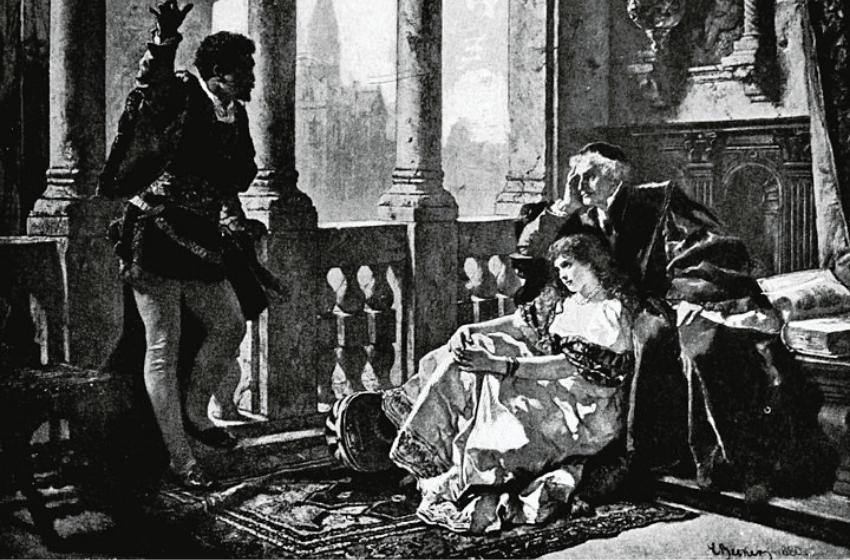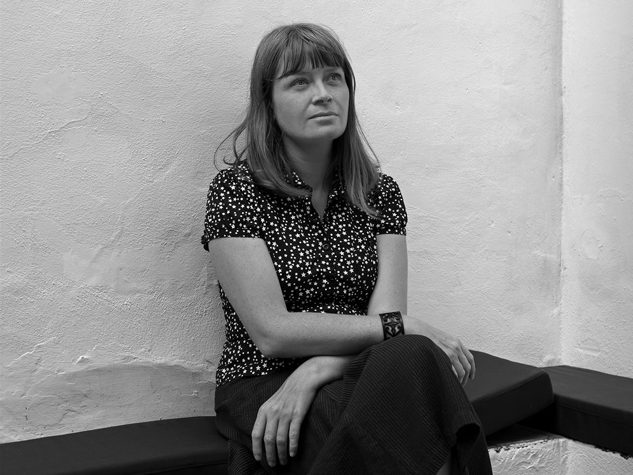By Natalia Ostroukhova, author of the trilogy "Odessa Opera House in Historical Space and Time"
The creative achievements of the Odessa vocal school and its wonderful graduates are a pride for the city. The manuscripts of the teachers of the vocal department of the Odessa Conservatory contain interesting and important details about its history, but there are also "blank spots". In this editorial we will share information from the biography of the Italian baritone Delfino Menotti, whose creative and personal destiny was tightly connected with Odessa.
In the spring of 1916, the first graduation of students of the Odessa Conservatory (opened in 1913) took place. The work of two professors of the vocal department were noted Yulia Raider, who later headed this department for many years, and Delfino Menotti.
In the history of the vocal department, Delfino Menotti says the following:
“… The top class of the Odessa Conservatory before the revolution, that is from 1913 to 1917, was the class of Professor Delfino Menotti. Unfortunately, neither in archival documents, nor in the memoirs of his students, it was not possible to find out whether Delfino Menotti was an opera singer in the past: where, when, and how he sang, but his students remember that he had a good voice."
"Italian by birth, he was not a typical representative of a truly Italian school"

The singer's repertoire included 58 parts, classical and modern. From the outset, critics have recognised his talent as a vocalist and dramatic artist. His voice was distinguished by strength and beauty, clear diction, and great musical intelligence, the performance bore the imprint of his powerful personality. Delfino Menotti's greatest gifts were his dramatic abilities and domineering stage prowess, which was highly regarded by the conductor Arturo Toscanini and the outstanding theatre actress Eleonora Duse. These qualities made him indispensable for the performance of operas typical of modern times. Suffice it to recall the world premiere (1898) of Umberto Giordano "Fedora".
Domenico Giovanni Battista Delfino, know as Delfino Menotti, was born in Fiumicello (Oudino) in 1853 to a family of a doctor, patriot, and great music lover. In Trieste, he studied at the royal school of the municipality, then at the Science High School. He studied vocals with J. Roth, and in Milan with baritone S. Ronconi.
His relationship played an important role in the formation of the young man with the main characters of the uprising between 1878 and 1882, and in a creative sense - with representatives of the scapigliatura (disheveled), literary and artistic movement, to some extent similar to bohemia - conductor Franco Faccio, composer and librettist Arrigo Boito, composer Antonio Smarella.
The singer's debut took place on the Florentine Teatro Della Pergola in Gaetano Donizetti's opera "Linda di Chamounix" (1880), followed by "Faust" by Charles Gounod.


Delfino Menotti's successful career began in 1882. He was only 24 years old. Giuseppe Verdi drew attention to his performance of the role of Rigoletto at the Manzoni Theatre.
It seems that at the Manzoni Theatre Rigoletto sings a baritone, who showed himself in this work as an outstanding artist.
Giuseppe Verdi
The following year, on the recommendation of the great composer, Delfino Menotti played the main role in the opera "Simon Boccanegra" in Buenos Aires (it was performed 23 times). Soon he took part in the third version of the opera "Le Villi" by G. Puccini. After successes in South America and Europe in 1898, Delfino Menotti participated in the world premiere of Umberto Giordano's Fedora, with Enrico Caruso and Gema Bellincioni.
As far as various Italian, and not only encyclopedias and dictionaries describe the biography of Delfino Menotti, the information about his work in the Odessa theater is so incomplete.
Delfino Menotti in two seasons - 1894/95 and 1895/96 appears in the playbill of the Odessa Opera as a director. He sang with the most famous singers of his time: Francesco Tamagno, Roberto Stagno, Enrico Caruso, Adelina Patti...
In the season from November 1896 to March 1897, Menotti won the hearts of Odessa listeners and critics as an opera singer and even got into the Russian Imperial Census of 1897, in the list of Italian citizens in Odessa: Delfino Menotti, 38 years old, graduated from the Technological Institute in Italy, by profession - an opera singer. He lived at the address: Teatralny (Chaikovsky) lane 12, apt 2B.
He very successfully performed his best roles on the Odessa stage, and his success was increasing. Barnaba in "La Gioconda", then "Rigoletto", "Pagliacci", Tannhäuser (as Wolfram) together with Solomiya Krushelnytska
On January 6, the singer's benefit performance took place, in which he performed the crown part of his repertoire - Iago in the opera "Othello". Delfino Menotti, after the famous Morel, is one of the best performers of Iago's part.
Titta Ruffo, in an autobiographical book “My Parabola [La Mia Parabolaâ€, recalls:
“During the third performance of my Odessa tour (December 1904) - there was“ Rigoletto â€- I was lucky after the third act to meet Delfino Menotti, one of the most famous baritones of the previous generation.
... Except that Menotti was very handsome - tall, slender, with no spoiling his light gray hair and mustache, except that he was truly noble signor in demeanor, he was also distinguished a unique, versatile culture, combining the qualities of an outstanding singer with an artist, reader and eloquent orator. Leaving from the stage, he settled in Odessa, where he stood in the head of the singing school, using everyone's love and respect."
After leaving the stage, he settled in Odessa, where he stood at the head of the singing school, enjoying universal love and respect.

From 1904 to 1909 Menotti taught vocals at the Odessa School of Music. Here he married his student Antonina Truen, who took his family name.
At the invitation of the Boston Theatre, the Menotti family moved to America, where Delfino was involved in directing.
Then Delfino Menotti returned to Odessa, where he taught at the conservatory.
Unfortunately, we have not yet been able to find information about the further fate of many students, except for Antonina Delfino Menotti. In 1916-1919 she performed at the Odessa Opera the roles of Antonida (A Life for the Tsar" ), Michaela ("Carmen"), Marguerite de Valois ("Huguenots"), Violetta ("La Traviata") and others.

Their daughter Tatiana Menotti, also a singer (1909-2001), was born in Boston but raised in Trieste. For 25 years she was a principal artist at La Scala in Milan. She stopped her career in 1957 in order to support her husband, the Spanish tenor Juan Oncina.
Returning to Trieste, Delfino Menotti taught singing at the conservatory (among the graduates we can name the soprano Rina Pellegrini) and was the artistic director of the Teatro Giuseppe Verdi from 1920 until his death in 1937.
Memories, testimonies of the life and artistic activities of Delfino Menotti are kept in the singer's homeland, in the Museum of the Civic Theater of Carlo Schmidl in Trieste, where, among other things, there is his portrait of the artist Umberto Veruda (1892), donated by the Delfino family.






















